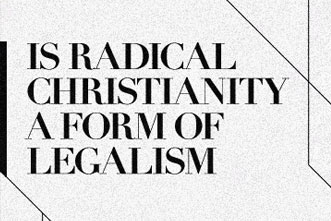A recent Christianity Today cover story by Matthew Lee Anderson has sparked a discussion around the growing “Radical Christianity” movement in evangelicalism (and beyond). It’s a conversation that has been brewing for years, but appears to have finally come to a head, at least in Christianity Today (CT).
Much of the discussion stems from David Platt’s best-seller, Radical. Other books and authors are mentioned (Shane Claiborne, Francis Chan and Kyle Idleman, among them), but when it comes to being a “Radical Christian,” David Platt is the guy most people immediately identify with that phrase.
Now, let me say that I know David, Francis and Kyle (my inteview with Kyle is here), so I have some personal bias. Regardless, let me weigh into the conversation because I am passionate about both missional and radical ideas and how they are lived out.
In his article, Anderson notes what spurred the movement. Radical “incited and tapped into a widespread dissatisfaction with many Americans’ comfortable, middle-class way of life and the Christianity that so easily fits within it.” I believe this to be a fair and accurate statement.
In and of itself, I would think that Platt would also agree. And this dissatisfaction is not even a bad thing.
However, the question is how do we deal with the issues? And that is where the criticism enters.
Anderson concludes his article saying:
For us in the pews, testing ourselves must include deliberating about our vocations and whether we are called to missions, or to a life of dedicated service to the poor, or to creating reminders with art and culture of the gospel’s transcendent, everlasting hope. Discovering a radical faith may mean revisiting the ways in which faith can take shape in the mundane, sans intensifiers. It almost certainly means embracing the providence of God in our witness to the world. The Good Samaritan wasn’t a good neighbor because he moved to a poor part of town or put a pile of trash in his living room. He came across the helpless victim “as he traveled.”
We begin to fulfill the command not when we do something radical, extreme, over the top, not when we’re really spiritual or really committed or really faithful, but when in the daily ebb and flow of life, in our corporate jobs, in our middle-class neighborhoods, on our trips to Yellowstone and Disney World — and yes, even short-term mission trips — we stop to help those whom we meet in everyday life, reaching out in quiet, practical and loving ways.
Another notable detractor of this “Radical Christianity” is Dr. Anthony Bradley.
In a recent article in World magazine, Dr. Bradley writes:
… Some religious leaders have added a new category to Christianity called “radical Christianity” in an effort to trade off suburban Christianity for mission.












